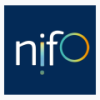This table here below aims at providing an overview of all the initiatives, such as the political communications, guidelines, and legislation, related to interoperability that have been put in place in Liechtenstein.
National Interoperability Framework
The National Interoperability Framework (NIF) is a set of standards, policies, and guidelines that ensure that information and communication technology (ICT) systems can communicate and share data seamlessly. It promotes the development of interoperable systems that facilitate data exchange and collaboration between different organizations and levels of government. The NIF provides a common language and a framework for ensuring that ICT solutions are compatible, secure, and reliable, which enhances the efficiency of public services and improves citizen outcomes.
Good Practices
This section provides examples at the national level in line with a selection of different thematic areas of the European Interoperability Framework (EIF). Further initiatives and good practices are available in the country’s Digital Public Administration Factsheet.
Providing information and advice is one of the core tasks of the National Data Protection Supervisory Authorities under data protection legislation. Moreover, the Cyber Security Unit of the Principality of Liechtenstein is the central point of contact for all matters relating to cyber risks. It acts as a hub, mediation and liaison centre for the population, the economy, critical infrastructures and government bodies.
In Liechtenstein, the legal, organisational, semantic, and technical framework conditions are defined via the eGovernment Strategy and the eGovernment Act (as well as other laws and ordinances). Ministries and the Office for Information Technology are in constant contact with all administrative levels and sectors to ensure consistency and coordination.
The administration in Liechtenstein has one register (ZPRG), whose data the ones coming from other associated supplementary registers is regulated by law and is used in accordance with the Once Only Principle, wherever possible.

